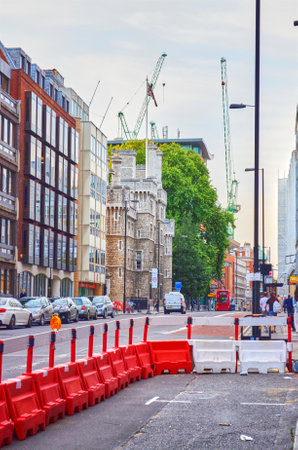Understanding Your Healthcare Rights in Europe
Since the UK left the European Union, many British travellers are unsure about their healthcare rights when visiting Europe. It’s crucial to know what has changed post-Brexit and what protections remain in place for UK citizens abroad. Before Brexit, Brits could rely on the European Health Insurance Card (EHIC) for access to state-provided healthcare during temporary stays in EU countries. Now, while some agreements remain, things aren’t quite as straightforward. If you have a valid EHIC issued before 1 January 2021, you can continue using it until it expires. After that, you’ll need to apply for the new UK Global Health Insurance Card (GHIC), which offers similar coverage but may not be accepted everywhere—especially outside the EU or in countries with no reciprocal arrangements. It’s important to note that neither the EHIC nor GHIC replaces travel insurance; both only provide access to medically necessary state healthcare at reduced cost or sometimes free, under the same conditions as residents of the country you’re visiting. However, some services—like private healthcare or mountain rescue—are not covered. Each European country may interpret these entitlements differently, so always check local guidelines before travelling. In short, while much remains familiar for UK citizens seeking medical care in Europe, careful preparation and understanding of your rights can save you hassle and unexpected costs.
2. Applying for a UK Global Health Insurance Card (GHIC)
Step-by-Step Guide to Getting Your GHIC
The UK Global Health Insurance Card (GHIC) has become essential for British travellers seeking access to necessary healthcare while visiting European countries post-Brexit. Here’s how you can apply for one easily:
How to Apply for a GHIC
- Visit the official NHS website: www.nhs.uk/ghic.
- Complete the online application form with your personal details, including your National Insurance number and address in the UK.
- Submit your application—there are no fees when applying directly through the NHS.
- Your GHIC will be posted to your home address within approximately 10 working days.
Note:
You should apply well before your travel date, as processing times may vary during busy periods.
What Does the GHIC Cover?
The GHIC allows you to access medically necessary state-provided healthcare in most European countries at the same cost as residents of that country. This often means free or reduced-cost treatment for emergencies, chronic illnesses, or routine maternity care during your stay. However, it does not cover private medical care, repatriation costs, or all health services. Always check what is covered in your destination country before travelling.
| Covered by GHIC | Not Covered by GHIC |
|---|---|
| Emergency treatment Routine maternity care Treatment for pre-existing conditions State-provided healthcare |
Private healthcare Medical repatriation Cruise holidays outside EEA/Switzerland Non-state healthcare providers |
GHIC vs EHIC: What’s Changed?
| Feature | GHIC | EHIC (Old Card) |
|---|---|---|
| Eligibility | UK residents only | UK and EU residents pre-Brexit |
| Covers EEA & Switzerland? | Mainly EU countries; limited coverage in EEA/Switzerland* | Covers all EU countries plus EEA/Switzerland |
| Valid Post-Brexit? | Yes – new applications only | No – unless issued by an EU country or still in date from UK pre-2021* |
*Some exceptions exist depending on ongoing agreements. Always check current guidance before travelling.
A Plain English Takeaway
If you’re a Brit heading off to Europe, getting a GHIC is a must-do for peace of mind. It won’t cover absolutely everything, but it’ll save you a lot of hassle if you end up needing medical help abroad. Don’t rely on old EHICs unless you know they’re still valid—always double-check before jetting off!
![]()
3. Healthcare Costs: What’s Free and What’s Not
When travelling in Europe post-Brexit, UK citizens need to be especially aware of what healthcare services are covered and which ones might come with a price tag. Understanding the rules can help you avoid unexpected bills and ensure you receive the care you need without unnecessary stress.
What’s Covered with Your GHIC or EHIC?
Your Global Health Insurance Card (GHIC), or still-valid European Health Insurance Card (EHIC), allows you to access state-provided healthcare in most EU countries at the same cost as local residents—sometimes free, sometimes at a reduced rate. This typically includes emergency treatment, GP visits, and necessary hospital care. However, it only applies to public healthcare providers, not private clinics or hospitals.
Potential Charges You Might Face
While some services may be free, many European countries require patients—even locals—to contribute towards the cost of their treatment through co-payments or prescription charges. For example, you might have to pay for part of your medication, ambulance transport, or overnight stays in hospital. These costs are usually non-refundable by the NHS.
Avoiding Unexpected Medical Bills
To steer clear of surprise expenses, always present your GHIC/EHIC before receiving treatment and confirm that the facility is part of the public system. Ask about any upfront charges or co-payments so you know what to expect. Additionally, consider taking out comprehensive travel insurance that covers private care and repatriation—these aren’t included under GHIC/EHIC. In short, plan ahead and don’t assume everything will be covered just because you hold a health card.
4. Travel Insurance: Why You Still Need It
If you’re a UK citizen travelling in Europe post-Brexit, you might think your Global Health Insurance Card (GHIC) or still-valid European Health Insurance Card (EHIC) is enough to keep you covered. However, having comprehensive travel insurance remains absolutely essential. Here’s why:
GHIC/EHIC vs Travel Insurance: What’s the Difference?
| Feature | GHIC/EHIC | Travel Insurance |
|---|---|---|
| Medical treatment (state-provided) | Yes – same as local residents | Yes – private and state options |
| Private healthcare cover | No | Yes (if included in policy) |
| Repatriation to UK | No | Yes (if included in policy) |
| Lost luggage & valuables | No | Yes (if included in policy) |
| Trip cancellation/curtailment | No | Yes (if included in policy) |
| Personal liability cover | No | Yes (if included in policy) |
Plain English Explanation:
The GHIC/EHIC gives you access to basic state healthcare, but it won’t help with things like being flown back to the UK after an accident, stolen belongings, or if you need private medical care. Travel insurance fills all these gaps.
Why Comprehensive Cover Matters for Brits Abroad
- No NHS abroad: The NHS won’t cover your costs outside the UK, so you’ll be footing the bill unless you’ve got insurance.
- Bills can be sky-high: Even a short hospital stay could cost thousands of pounds in some countries.
- Cancellations & delays happen: Flights get cancelled, bags go missing – travel insurance sorts out the financial mess.
- Pandemic & strikes: COVID-19 and industrial action can disrupt plans; only the right policy will protect you.
- Adventure activities: Planning on skiing or watersports? Standard policies may not cover accidents during these activities unless specified.
How to Choose the Right Level of Cover?
- Medical cover amount: Look for at least £1 million for Europe trips. More is better, especially if you’ll be active.
- Covers repatriation: Make sure it includes getting you home safely if something goes wrong.
- Baggage and belongings: Check what’s covered and any single-item limits.
- Cancellations: Ensure it covers non-refundable bookings if your plans change unexpectedly.
- Add-ons for activities: Declare any sports or risky activities before buying your policy.
A Quick Checklist Before Buying:
- Your destination(s) are included?
- Your pre-existing health conditions are declared?
- You understand any excess fees?
Treat travel insurance as essential kit – just like your passport. Don’t risk hefty bills or ruined trips; buy it as soon as you book your holiday for maximum protection from the get-go.
5. Accessing Emergency and Routine Medical Services
Navigating Local Medical Systems in Europe
As a UK citizen travelling in Europe, it’s vital to understand how local healthcare systems operate post-Brexit. While some procedures might be familiar, each country has its own set of rules and processes. Start by identifying the nearest hospital or clinic upon arrival. Most European countries have public and private healthcare facilities—public ones are usually more affordable, especially if you hold a valid GHIC (Global Health Insurance Card). Keep your passport and GHIC with you, as these may be requested when seeking treatment.
What To Do In Medical Emergencies
If you face a medical emergency, dial the European emergency number 112. This works across EU countries and connects you to local emergency services (ambulance, police, or fire brigade) with English-speaking operators often available. Clearly state your location and the nature of the emergency. If possible, inform your travel companions or accommodation staff—they can help communicate with local responders or provide translation support if needed. After immediate assistance, make sure to contact your travel insurance provider as soon as possible for further guidance on coverage and next steps.
Tips for Quick Emergency Response:
- Save the 112 emergency number in your phone before travelling.
- Learn basic medical terms in the local language (such as ‘doctor’, ‘hospital’, ‘pain’, or ‘allergy’).
- Carry a written note of any allergies or medical conditions in both English and the local language.
Getting Routine Care While Abroad
For non-urgent health concerns like minor illnesses or prescription refills, visit a local pharmacy (often marked with a green cross). Pharmacists in Europe are well-trained and can offer advice or recommend over-the-counter treatments. For GP consultations or non-emergency appointments, check if your accommodation provides recommendations for English-speaking doctors or clinics. Many cities have medical centres catering specifically to tourists. Use your GHIC to access state-provided care where available, but be prepared to pay up-front in some cases—keep all receipts for possible reimbursement from your insurer.
Key Takeaways:
- Familiarise yourself with local healthcare processes before you need them.
- Always carry essential documents (passport, GHIC, travel insurance details).
- In an emergency, dial 112 and seek help from locals if language is a barrier.
- Use pharmacies for minor issues; seek recommended clinics for routine care.
Knowing how to access emergency and routine medical services ensures peace of mind while exploring Europe, so you can focus on enjoying your trip without unnecessary stress.
6. Prescriptions and Medication Abroad
Managing your medication while travelling in Europe post-Brexit requires careful planning to avoid disruptions to your health routine. Below, we break down the key steps UK citizens should follow to stay on top of prescriptions and medicines when heading abroad.
Bringing Your Own Medication
If you rely on prescription medicine, always ensure you have enough for your entire trip, plus a little extra in case of delays. Medicines should be kept in their original packaging with clear labels that match the name on your passport. This not only helps at border checks but also makes things easier if you need to see a healthcare professional overseas.
Required Documentation
Certain medications—especially controlled drugs—require extra paperwork when taken out of the UK or brought into another country. You may need a letter from your GP detailing your prescription and why you need it, or even an official export licence for specific medicines. It’s wise to check both UK government advice and the rules of your destination country before you travel.
Dealing with Customs and Border Control
At the border, you may be asked to declare any medication you’re carrying. Keep all necessary documentation handy, including your prescription and any supporting letters. Be aware that some countries have strict laws about bringing in certain drugs, even if they’re legal in the UK—so double-check beforehand to avoid issues.
Obtaining Prescriptions Abroad
If you run out of medication or lose it while in Europe, visit a local doctor or pharmacy as soon as possible. Your UK prescription might not always be recognised, so be prepared to pay for a local consultation and new prescription. Carrying an English version of your prescription, along with its generic name (not just brand name), can make this process much smoother.
Pharmacy Procedures Across Europe
Pharmacies (‘chemists’ in the UK) may operate differently across Europe; some over-the-counter drugs in Britain might require a prescription elsewhere and vice versa. Always check local rules ahead of time, and don’t hesitate to ask the pharmacist for help—they’re often able to advise on alternatives if your usual medicine isn’t available.
Top Tips for Travellers
- Plan ahead: Get any required paperwork well before your journey.
- Keep medicines in hand luggage—never pack them in checked bags.
- Know the generic names of your medications for easier replacement.
- Check embassy or consulate websites for country-specific rules on medicines.
Being organised about prescriptions and medication will give you peace of mind during your European travels and help ensure your holiday goes off without a hitch—even after Brexit changes.


